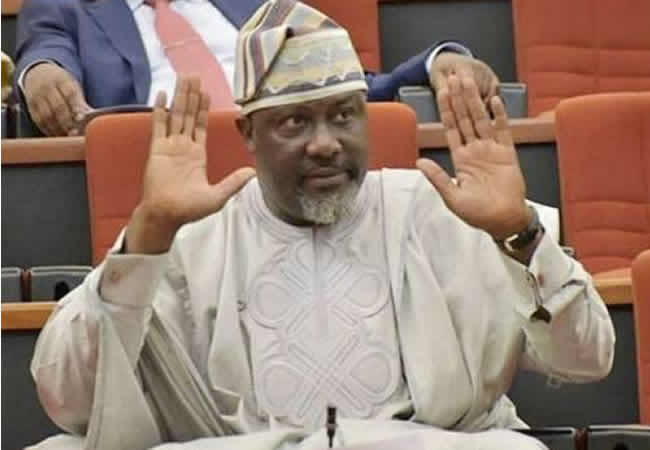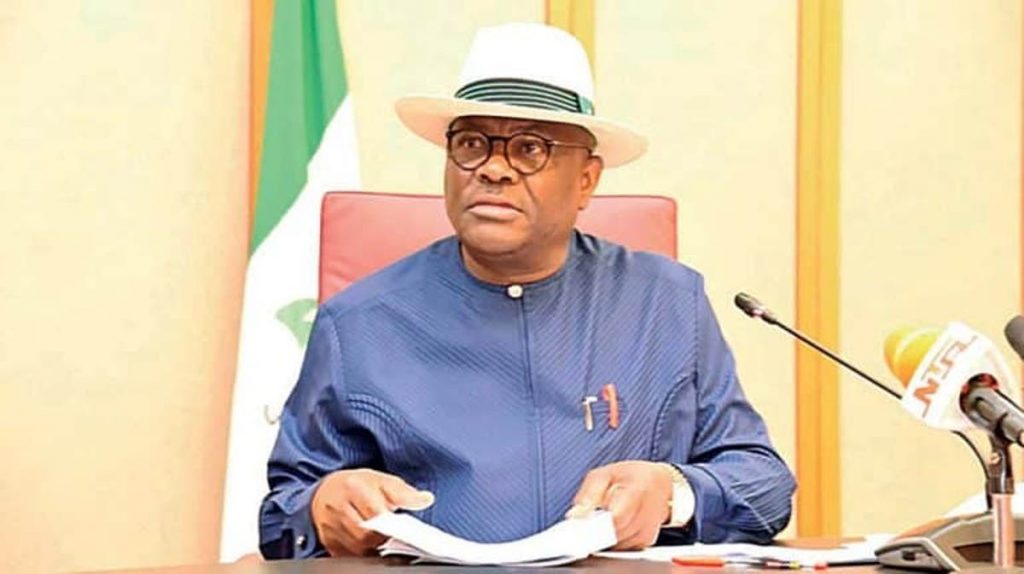Politics
Gov Election: Allow Use Of Temporary Voter Cards, Court Orders INEC

The Federal High Court in Abuja, on Thursday, ordered the Independent National Electoral Commission to allow the use of Temporary Voter Cards in the forthcoming governorship and state houses of assembly elections which has been slated for March 18.
Two aggrieved Nigerians had filed a suit seeking the use of the Temporary Voter Card in the general elections in the absence of the Permanent Voter Cards.
The plaintiffs, Kofoworola Olusegun and Wilson Allwell, in the suit filed on February 8 and marked FHC/ABJ/CS/180/2023, challenged the position of INEC and asked the court to determine “whether a person whose name appears in the electronic format in INEC’s central database and manual, printed paper based record or hard copy format of the register of voters and has been assigned a Voter’s Identification Number can be said to be entitled to be accredited to vote with his/her TVC in the general election to be conducted by the defendant.”
The plaintiffs further requested the court to determine whether such a person can, as a consequence of INEC’s liabilities… omission be disenfranchised of the right and entitlement to vote in the 2023 general election.
READ ALSO: JUST IN: INEC Shifts Gov, Assembly Elections, Fixes New Date
Consequently, they prayed for the following reliefs should the questions be answered in their favour.
They asked for “a declaration that the plaintiff, having fulfilled all necessary legal requirements to register and having consequently been captured in its central database and manual, printed paper-based record or hard copy format of INEC’s maintained register of voters, the plaintiffs are entitled to vote using their TVC in the 2023 General Elections”.
Ruling, the court held that there was no portion of the law, both the 1999 Constitution and the Electoral Act that states that it is only PVCs that could be used, but that the law under Section 47 provided for a voter’s card.
Justice Egwuatu stated that the order was made on the grounds that the plaintiffs were duly registered and captured in INEC’s database.
He ruled that, “an order is made compelling the defendant to allow the plaintiffs to vote using their Temporary Voter Cards issued by the defendant, the plaintiffs having been duly captured in the National Register of Voters database”.
The judge further held that the plaintiffs are entitled to vote using their TVC in the forthcoming 2023 general election “having fulfilled all necessary legal requirements to register and having consequently been captured in INEC’s central database and manual, printed paper-based record or hard copy format”.
However, prayer 3 which was a request to allow every eligible voter with a TVC to vote was not granted.
“Any other order, the court may deem fit for all other Nigerians who are like the plaintiffs and have not gotten their permanent voter’s card, as the court may deem fit”
READ ALSO: Resign If you Can’t Ensure Credible Elections, Group Tells INEC Chair
The judge held that the suit was not filed in a representative capacity.
The court maintained that, “This suit having not been brought in a representative capacity, I find myself unable to grant any relief pursuant to prayer three of the plaintiffs application.”
Speaking, counsel for the plaintiffs, Victor Opatola said that the judgement was a win for all Nigerians who suffered to get registered to vote, were duly registered but due to no fault of theirs could not get their PVCs before the election.
He said, “since my clients had fulfilled all necessary requirements by law but were not issued their PVCs until the time for collection of PVCs was over, they should not be allowed to suffer”.
The lawyer also said that it was the law of equity that what applied to the goose should also apply to the gander.
“So what the court is saying is that these two people who have fulfilled all necessary requirements can vote with their TVCs, then by law of equity, it should also apply to all Nigerians who have fulfilled all necessary requirements and were issued TVCs by INEC.”
Furthermore, he asserted that the content of the TVC was the same as the content of the PVC and the only difference was the plastic used for the PVC.
PUNCH
Politics
Dino Melaye Reacts To Malami’s Arraignment For Money Laundering

Ex-Kogi West senator, Dino Melaye, has reacted to the arraignment of a former Attorney General of the Federation, AGF, Abubakar Malami, before an Abuja Federal High Court.
Melaye wished Malami well as he began his trial for corruption.
Posting on X, the former lawmaker recalled how he was prosecuted by Malami over what he described as frivolous cases while he was the AGF.
He wrote: “Reminded me of how I was appearing in different courts when Malami as AGF was prosecuting me over frivolous cases including taking over one of the police cases against me. Wish him.well.”
READ ALSO:JUST IN: Dino Melaye Resigns From PDP, Cites Party’s ‘Lack Of Potency’
Malami, his son Abdulaziz, and another individual are facing a 16-count charge of money laundering.
They were arraigned on allegations of unlawful acquisition and concealment of funds.
They all pleaded not guilty to the charges.
Politics
What PDP Said About Wike’s Media Parley

The Peoples Democratic Party, PDP, has accused the Minister of the Federal Capital Territory, FCT, Nyesom Wike, of being a constant agent of provocation in the political space, alleging that he creates trouble to mask selfish intentions.
The party’s National Publicity Secretary, Ini Ememobong, stated this in a statement issued on Monday in response to Wike’s media parley with selected journalists in Port Harcourt, also held on Monday.
According to the PDP, remarks made by the minister on several occasions are proof that he falls short of being a locus classicus of anti-democratic adventurism.
The party said Wike’s conduct was not new, stressing that he has consistently acted as an agent provocateur in the political arena, stirring controversy to advance personal interests.
READ ALSO:Wike Speaks On Defecting To APC
The PDP further stated that since Wike assumed office as Governor of Rivers State in 2015, he has remained a recurrent source of trouble within the party’s leadership.
“From the Sheriff era, where he was a forerunner in the Sheriff-for-National Chairman movement and later turned to fight and remove Sheriff; later he championed the Uche Secondus-for-National Chairman movement (in fact, he granted a very combustible interview that polarized the party just before the convention) and then was the same person fighting to remove Secondus.
“The same Wike led the movement to produce Dr. Iyorchia Ayu as National Chairman against the advice of many party leaders, and so soon thereafter, it was Wike again who led the Ayu-must-go struggle.
“By his end-of-year media chat, Minister Nyesom Wike has reiterated his support for, and in fact declared that he is the ‘number one supporter’ of the presumptive candidate of the All Progressives Congress in the 2027 Presidential election, while remaining a member of the Peoples Democratic Party, confirming the basis of his expulsion from the PDP, for anti-party activities,” the statement said.
Politics
JUST IN: INEC Excludes PDP From Ekiti Governorship Election

The candidate of the Peoples Democratic Party, PDP, for the 2026 Ekiti governorship election, Dr Wole Oluyede, and his deputy were conspicuously absent as the Independent National Electoral Commission, INEC, released the provisional list of party candidates ahead of the election.
INEC on Monday posted the list of candidates from 12 political parties vying for the state’s top job at its office on New Iyin Road, Ado-Ekiti, Ekiti State.
The list shows that the All Progressives Congress, APC, is fielding the incumbent governor, Biodun Oyebanji, with Monisade Afuye as his running mate.
READ ALSO:Tinubu Sends Ex-INEC Chair, Former Oyo First Lady, 30 Additional Ambassadorial Nominees To Senate
Other candidates include Opeyemi Falegan of the Accord Party, with Omoyemi Olaleye as deputy; Akande Oluwasegun of the African Action Congress, paired with Oluwasanmi Fajuyigbe; and Ayodeji Ojo of the Action Democratic Party, with Itunu Ibitoye as running mate.
Similarly, the African Democratic Congress is presenting Oluwadare Bejide and Paul Olowoyeye, while the Action Peoples Party has Bidemi Awogbemi and Akinyemi Adewumi on its ticket.
The PDP’s absence may not be unconnected with the leadership crisis currently rocking the party at the national level.

 News4 days ago
News4 days agoBREAKING: Anthony Joshua Involved In Road Accident

 News5 days ago
News5 days agoEx-Edo Gov Obaseki Reacts As His Cousin Is Beaten, Stripped

 Politics4 days ago
Politics4 days agoYou’re Not 001 – Wike Rubbishes Claims Of Fubara Being APC Leader In Rivers

 Metro5 days ago
Metro5 days agoObaseki Beaten, Stripped In Edo

 Politics4 days ago
Politics4 days agoWike Speaks On Defecting To APC

 Politics4 days ago
Politics4 days agoJUST IN: INEC Excludes PDP From Ekiti Governorship Election

 News4 days ago
News4 days agoDoris Ogala: How Pastor Chris Knelt Before Church, Begged For Forgiveness [Video]

 News4 days ago
News4 days agoNAF Neutralizes Bandits At Turba Hill, Kachalla Dogo Sule Camps

 Politics4 days ago
Politics4 days agoGo To Hell, You Didn’t Pay My School Fees – Wike Hits Seyi Makinde

 News3 days ago
News3 days agoNigerian Army Finally Reveals Details Of US Military-led Airstrikes In Sokoto
























